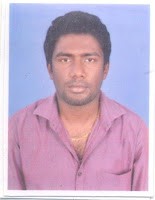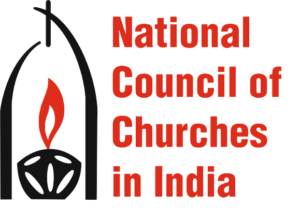The National Council of Churches in India welcomes new interns for 2016 – 17. These young people have come from different regions and backgrounds. During their time at NCCI, it is hoped that they would explore various concerns, learn and contribute to the strengthening of the ecumenical movement in India.
 Ngalaton Ningsen
Ngalaton Ningsen
Ngalaton is from Nagaland and is an intern for Tribal and Adivasi concerns. She has done her B.D. from Bishop’s College, Kolkata in 2016. She has earlier worked as a secretary in Evangelical Union ministry at Patkai, Sunday school staff in Senakeithei village, Manipur, and has been a member of Nagaland Singing Ambassadors Choir. She is seeking for an opportunity from NCCI to explore herself in the best possible way, to have a wider picture of Tribal and Adivasi concerns beyond North East India which she believes will be of great benefit and help for her future M.Th. studies.
 Shitovi Sema
Shitovi Sema
Shitovi is intern for Youth concerns. He is from Dimapur, Nagaland and has done his M.Th. in Missiology from Aizawl Theological College in 2016 and B.D. from Easter Theological College in 2013. He served Dimapur Sumi Baptist Church as a Youth Coordinator (Voluntary service) in 2013-2014. He is a worship leader of his church. He want to improve his skills in programme strategies, social analysis, communication, inter-personal mission and evangelism, and leadership.
 Manas Raj
Manas Raj
Manas is serving NCCI as an intern for concerns of Unity, Mission and Evangelism. He has done his B.D. from Bethel Bible College, Andhra Pradesh in year 2016. He is from Adarshapara C.N.I. Church, Sambalpur Diocese and has worked as a Secretary of the Youth Fellowship in his church and was engaged in social works like cleaning the surroundings, Plantation, Rally against Gender Discrimination and Environmental Degradation, and has attended programs on social work in the church.
 Hungreiphy Zas
Hungreiphy Zas
Hungreiphy Zas hails from Manipur. She belongs to the Tangkhul Baptist Church, which is a member of Manipur Baptist Convention. She has graduated recently in Bachelor of Divinity (BD) from Leonard Theological College, Jabalpur. She is an intern for All India Council of Christian Women- Women’s Wing NCCI. She wants to be a part of NCCI to get experience and skills in various fields especially improvement in communication skills, as well as to expose herself in a wider ministerial area.
 Jyotirmaya Tandi
Jyotirmaya Tandi
Jyotirmaya is intern for Dalit concerns. He is from Titlagarh, Odisha and has done his B.D. from Bethel Bible College in year 2016. He was a youth leader of his church and served Christian Endeavor as a treasurer. He is looking forward to learn leadership qualities and to bring justice and equality for Dalits.
 David Jadhav
David Jadhav
David is working with All India Sunday School Association as an intern. He is from Nagpur. He has done his Bachelor’s degree from Science stream in 2016. He is member of Harvest Church, Nagpur and is actively participating in church activities such as organizing youth events, operating sound system etc. His objective to join NCCI is to bring unity among all denominations and churches.
 Hrudhay Addurwar
Hrudhay Addurwar
Hrudhay is assisting the Administration Department of NCCI. He is from Nagpur and completed his Mechanical Engineering course in 2013. He is CNI Nagpur Diocese Youth President for the 2015-2018 session. He is very active in church and social activities and is a very good football player. He is looking forward to serve the society and ecumenism through his internship
 Arina Murrian
Arina Murrian
Arina is from Nagpur and has done her graduation in Commerce in 2016. She is a member of St. Francis De Sales Cathedral, Nagpur. She is a part-time intern for IDEA Forum of NCCI. She is very active in her church and a part of the Youth Choir. She is looking forward to learn more about missionary activities through NCCI.
Read more
 Ecumenical news
Ecumenical news
Bishop Dr. P. C. Singh’s Presidential Message: Our Vision and Mission
/25 Comments/in Articles /by Caesar DavidOUR VISION AND MISSION
Dear Ecumenical Colleagues,
I thank God along with you for a century-long ministry of the National Council of Churches in India. I welcome all of you to this new quadrennial period of renewed vision and commitment.
I am grateful to all of you for unanimously electing me to be the President of this national ecumenical movement which, in the past, had been led by great ecumenical leaders like Bishop Vedanayakam Azariah. All the members of the Presidium will be working as a team. I request the full support of my friends.
Let me take this opportunity to bring greetings from Church of North India of which I am the Deputy Moderator and also from the Diocese of Jabalpur where I serve as its Bishop. We were privileged to host the quadrennial assembly of NCCI from 27 to 30 April, 2016 in Jabalpur. Our diocese was greatly blessed by your presence and participation.
It is only appropriate to reflect on our vision and mission for the new quadrennial period and future years. As all of us know, NCCI has initiated a Strategic Planning Process (SPP) which also involved a light assessment of NCCI’s life and work (Jan-Feb 2013)
The main objectives of the SPP were to:
I have drawn major insights of this “Vision and Mission” paper from the findings and recommendations of the SPP. To those I have added insights from my own experience a minister of the Church.
Read more
Meditation on ‘Inclusiveness’
/25 Comments/in Articles /by Caesar DavidIntroduction: “Gospel in a groaning world” was the theme of the previous quadrennial. The present quadrennial has the theme “Towards Just and Inclusive Communities”. During the assembly we deliberated on this theme in detail. This morning I wish to share some thoughts on the theme of “inclusiveness”.
Inclusiveness in simple terms means comprehending everything, containing everything and including everything. In human terms it means accepting and respecting others who are different from us, giving opportunities to those who are marginalized, and working towards a community without discrimination of gender, caste and creed.
What does this term mean in our Christian faith? What are its implications in our community life? These are some of the questions we need to deal with.
There are three main principles of Inclusiveness
Principle 1. God is the most important principle. Col.1:17 says that God is the basis of all things. We can call this principle also as unity in creation. It is by the word of God (divine fiat) that all things were created. Human beings were designed by God’s hand. The source is the same. Therefore, all creation will have to be finally restored to God. That is God’s purpose.
Principle 2. Life and its resources. Life is a gift from God. It is a common factor for all creation. Life has many forms. Think of the simple common things that we share as part of our life-sustaining system. The air we breathe, the water we drink, the sunlight we enjoy are some of them. All creatures share them. All of them originate from God. People belong to different religions and faiths. Yet, we are all grounded in the same source – life. So, life has priority over religions and faiths. The life which comes to us as a gift from God binds us all together.
Principle 3. Jesus Christ, He is the most powerful symbol of inclusivity. All things were created through him and all things which were created came into existence only through him (Jn.1)
Read more
NCCI’s new website
/25 Comments/in General news, News from NCCI /by Caesar Davidncci1914.com
NCCI’s new website ncci1914.com was inaugurated by NCCI President, Honourable Bishop Dr. P. C. Singh on August 11, 2016 in the course of the General Body meeting in Chennai. Bishop Dr. P. C. Singh appreciated NCCI’s Commission on Communications and Relations for the upgrade, and wished the website to be a channel for more effective accomplishment of ecumenical objectives as communicating communities seeking to synergize efforts in service of the Church and Society.
NCCI’s new website is aimed at incorporating newer strategies and website components towards optimizing available technology to the various ways people currently use it, and its new domain name brings into focus the historic standing and commitment of the Council. The website will serve as a repository for reference and relevant data as well as a portal for news from NCCI, its member bodies and ecumenical concerns in general. With a responsive web design and integrated cross-platform content sharing (eg. in addition to email, facebook, twitter and other online social media, news posts viewed on mobile devices can now be shared on whatsapp as well), NCCI has responded practically to changing trends of accessing and sharing data across multiple platforms, including smart phones. The NCCI news app for AndroidTM devices that complements the news components of the website, continues to be freely available on Google PlayTM
Read more
Black Day Observance at NCCI Campus, Nagpur
/24 Comments/in General news /by CommunicationsRead more
A Relevant Diaconal Intervention for Youth Today
/25 Comments/in News from NCCI /by CommunicationsWorkshop on ‘Youth for Peace’
23rd July 2016, Aruppukottai, Virudhunagar, Tamilnadu
Read more
Indian Churches’ Pilgrimage of Green-justice…
/25 Comments/in News from NCCI /by CommunicationsSince there has been a long standing concern to strengthen churches in North India, the four local congregations belonging to NCCI Member churches come mainly from this region. The four congregations are part of the Church of North India (Amritsar Diocese), Gossner Evangelical Lutheran Church (Ranchi) Hindustani Covenant Church (Pune) and Methodist Church in India (Delhi Conference).
Read more
World Social Forum 2016. “Another world is needed: Together it is possible”
/23 Comments/in News from NCCI /by CommunicationsThis is to inform you that, the OIKOTREE (joint initiative of WCC, CWM and WCRC) movement is committed to campaigning against the injustices around the globe though various ecumenical pilgrimages for the past over a decade. Now, Oikotree is happy in announcing its participation in the World Social Forum 2016 to raise three key issues in the struggle for building together another world that is needed and possible. These are the questions of “Land”, “A New Epistemology about Life” and “People’s Assembly of the World”.
Read more
NCCI welcomes new interns for 2016-2017. Interns Orientation Workshop conducted.
/25 Comments/in General news, News from NCCI /by CommunicationsThe National Council of Churches in India welcomes new interns for 2016 – 17. These young people have come from different regions and backgrounds. During their time at NCCI, it is hoped that they would explore various concerns, learn and contribute to the strengthening of the ecumenical movement in India.
Ngalaton is from Nagaland and is an intern for Tribal and Adivasi concerns. She has done her B.D. from Bishop’s College, Kolkata in 2016. She has earlier worked as a secretary in Evangelical Union ministry at Patkai, Sunday school staff in Senakeithei village, Manipur, and has been a member of Nagaland Singing Ambassadors Choir. She is seeking for an opportunity from NCCI to explore herself in the best possible way, to have a wider picture of Tribal and Adivasi concerns beyond North East India which she believes will be of great benefit and help for her future M.Th. studies.
Shitovi is intern for Youth concerns. He is from Dimapur, Nagaland and has done his M.Th. in Missiology from Aizawl Theological College in 2016 and B.D. from Easter Theological College in 2013. He served Dimapur Sumi Baptist Church as a Youth Coordinator (Voluntary service) in 2013-2014. He is a worship leader of his church. He want to improve his skills in programme strategies, social analysis, communication, inter-personal mission and evangelism, and leadership.
Manas is serving NCCI as an intern for concerns of Unity, Mission and Evangelism. He has done his B.D. from Bethel Bible College, Andhra Pradesh in year 2016. He is from Adarshapara C.N.I. Church, Sambalpur Diocese and has worked as a Secretary of the Youth Fellowship in his church and was engaged in social works like cleaning the surroundings, Plantation, Rally against Gender Discrimination and Environmental Degradation, and has attended programs on social work in the church.
Hungreiphy Zas hails from Manipur. She belongs to the Tangkhul Baptist Church, which is a member of Manipur Baptist Convention. She has graduated recently in Bachelor of Divinity (BD) from Leonard Theological College, Jabalpur. She is an intern for All India Council of Christian Women- Women’s Wing NCCI. She wants to be a part of NCCI to get experience and skills in various fields especially improvement in communication skills, as well as to expose herself in a wider ministerial area.
Jyotirmaya is intern for Dalit concerns. He is from Titlagarh, Odisha and has done his B.D. from Bethel Bible College in year 2016. He was a youth leader of his church and served Christian Endeavor as a treasurer. He is looking forward to learn leadership qualities and to bring justice and equality for Dalits.
David is working with All India Sunday School Association as an intern. He is from Nagpur. He has done his Bachelor’s degree from Science stream in 2016. He is member of Harvest Church, Nagpur and is actively participating in church activities such as organizing youth events, operating sound system etc. His objective to join NCCI is to bring unity among all denominations and churches.
Hrudhay is assisting the Administration Department of NCCI. He is from Nagpur and completed his Mechanical Engineering course in 2013. He is CNI Nagpur Diocese Youth President for the 2015-2018 session. He is very active in church and social activities and is a very good football player. He is looking forward to serve the society and ecumenism through his internship
Arina is from Nagpur and has done her graduation in Commerce in 2016. She is a member of St. Francis De Sales Cathedral, Nagpur. She is a part-time intern for IDEA Forum of NCCI. She is very active in her church and a part of the Youth Choir. She is looking forward to learn more about missionary activities through NCCI.
Read more
National Council of Churches in India congratulates Mr. Bezwada Wilson
/25 Comments/in General news, News from NCCI /by CommunicationsMr. Bezwada Wilson (Picture Source: Indian Express)
National Council of Churches in India congratulates Mr. Bezwada Wilson, 50 year old renowned campaigner for abolition of the dehumanising practice of manually cleaning human excreta and toilets, being honoured with the Ramon Magsaysay Award 2016 for “asserting the inalienable right to a life of human dignity.”
Mr. Wilson is the National Convener of the Safai Karmachari Andolan and a member of Church of South India. A Dalit born into a family of manual scavengers in Karnataka, Wilson had seen his parents clean toilets as a boy. His first questions about the inhumane system of manual scavenging, and on why only Dalits were forced to carry night soil for dumping at designated spots cropped up when he was in fourth standard in school.Being a Dalit, Wilson was discriminated against, looked down upon as a child. He was treated as an outcast in school and acutely aware of his family’s lot. Although he was spared the labour of manual scavenging and given a chance to pursue higher education, the profession followed by his family and caste haunted his identity as a teenager. The profession, though outlawed by the Indian Constitution in 1993, is still the primary occupation of over 180,000 Dalit families, according to the 2011 census data.
Wilson channeled his anger against the inhumane system into a crusade to eradicate manual scavenging. His life and work has contributed in a big way to the movement for eradication of manual scavenging in society. Taking cognizance of Wilson’s work in emancipation of manual scavengers, the Magsaysay Award has also flagged manual scavenging as a dehumanizing practice that must be eradicated. This award aims at detaching manual scavenging and sanitary work from Dalits, in the larger context of reforming the caste system, by pushing government agencies to replace manual scavenging with mechanization.
Pradip Bansrior
Executive Secretary
Dalit and Tribal/Adivasi Concerns
National Council of Churches in India
Protest and Street Theatre Campaign in Nagpur against injustices to Dalits
/24 Comments/in News from NCCI /by CommunicationsIn recent times, a series of atrocities on Dalit youths and women all over India have terrorized the entire nation. NCCI’s Dalit Concerns Programme and Vidarbha Centre for Labour Concerns along with Bahujan Rangbhumi thought it best to to voice out the issue in the press and take it to the streets. A Press Conference was organised at the Tilak Patrakaar Bhavan on the 28th July 2016. This was followed on 30th July 2016 by a protest Dharna and a street Theatre depicting the atrocities on Dalits and challenging the people to rise up to the occasion.
Read more